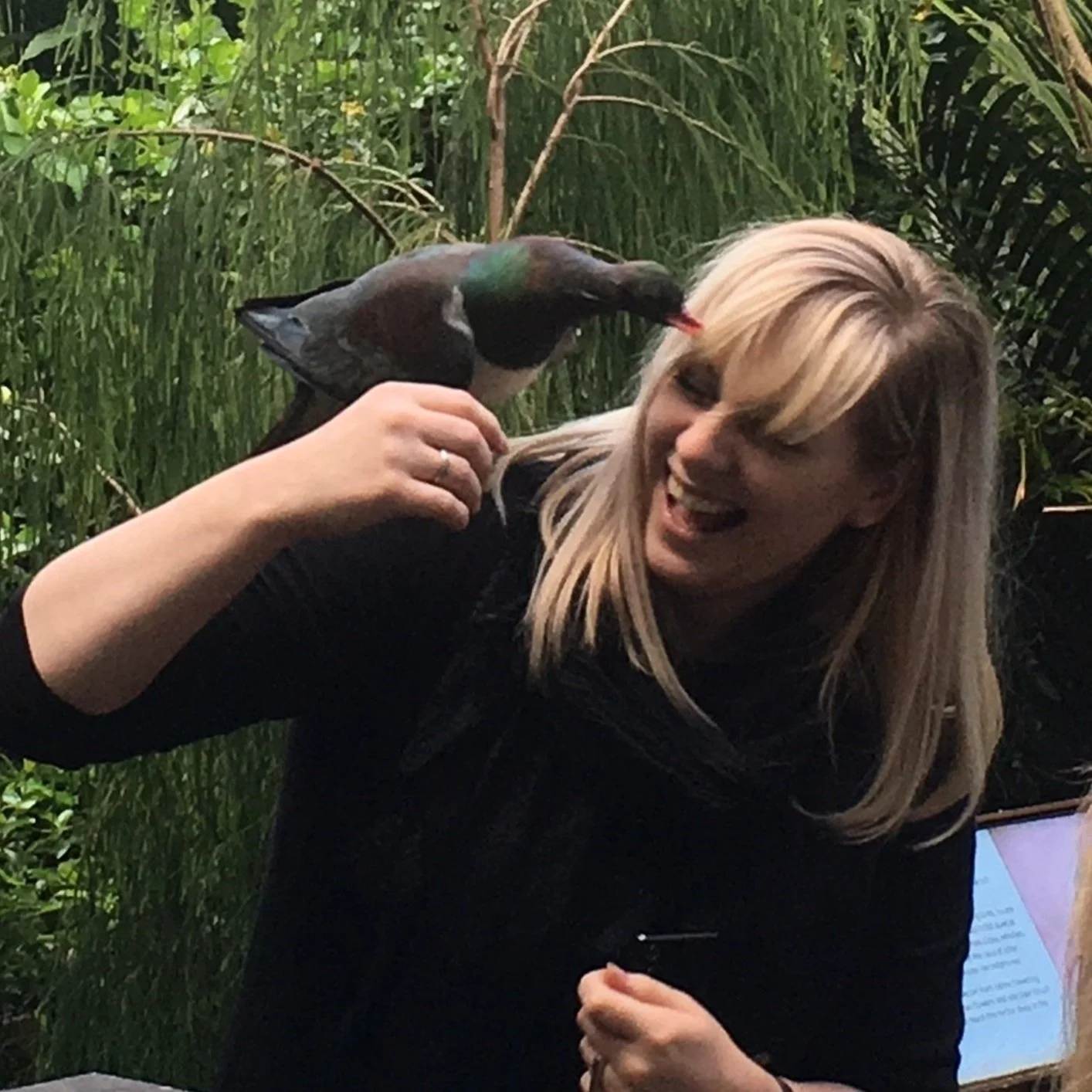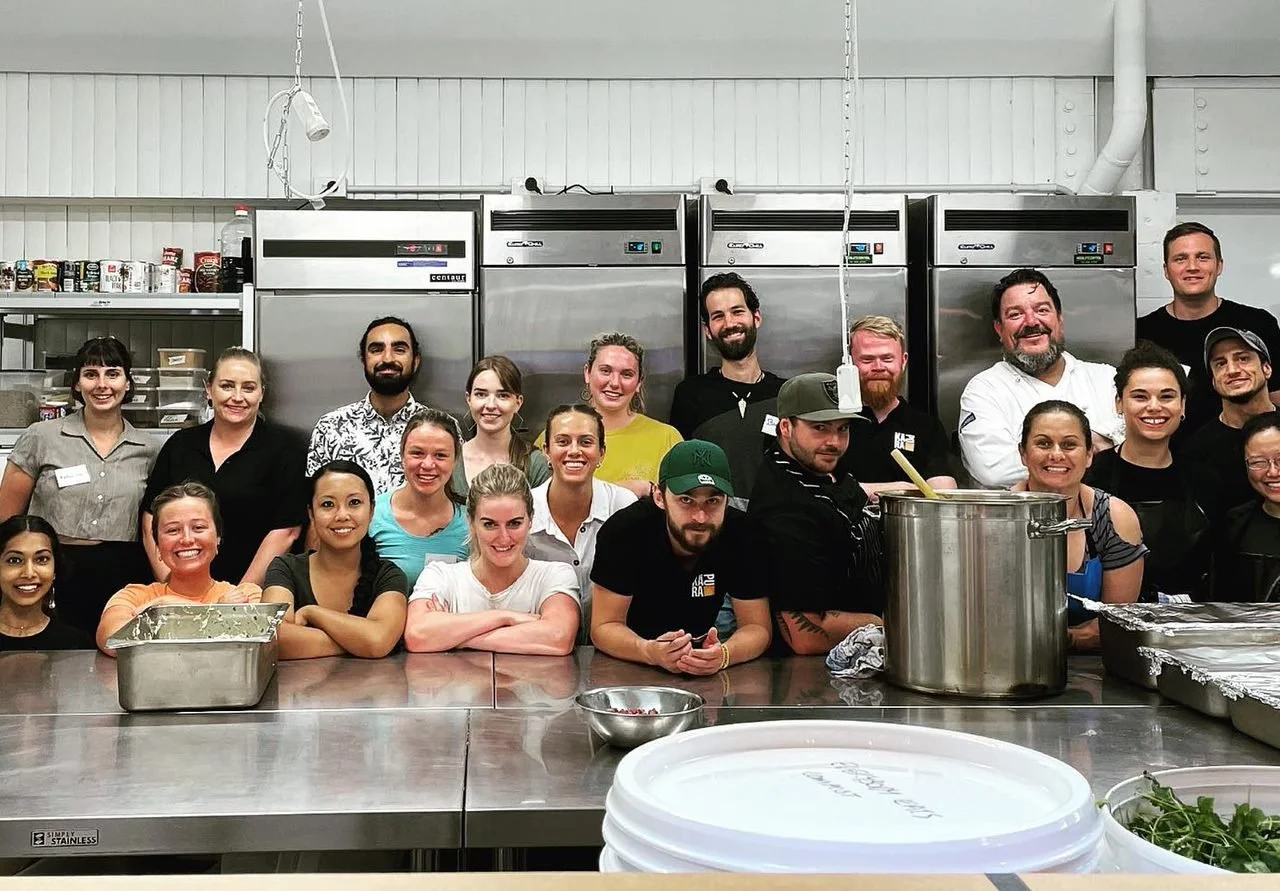Feeding the community: Diversity of social capital within Everybody Eats
Kaylē Baker
Kaylē Baker was a recipient of one of Food Waste Innovation’s seed grants in 2021. Kaylē’s project looks at food program Everybody Eats’ ‘pay-as-you-feel (PAYF)’ model, serving restaurant-quality food, can facilitate diverse social capital (SC).
Every year, Aotearoa New Zealand wastes hundreds of thousands of tonnes of food. All the while, 14% of Aotearoa Whānui experienced moderate or severe food insecurity between 2016 and 2018. Despite that food programmes (FPs) alleviate individual hunger, they are ‘band-aid’ solutions, offering short-term support with no structural resolution of the underlying issue: inequity. Increasingly, researchers explore how FPs might use social capital (SC) to address the systemic issues perpetuating food insecurity. These studies suggest that FPs foster a sense of community and provide an opportunity for beneficiaries to build SC. However, food insecurity is an alienating experience, where stigmas surrounding food aid are internalised as shame. Beneficiaries express feeling “socially different” and “left behind”, as financial barriers prevent their participation in the many social and cultural activates revolving around food; thus, a sense of community must extend beyond FPs and into wider society.
The Everybody Eats team in Te Whanganui-a-Tara, Wellington
Everybody Eats is an initiative that attempts to circumvent experiences of isolation for people facing food insecurity. This community food programme (CFP) uses food reuse strategies to convert surplus food into restaurant-quality meals before it becomes waste; feeding bellies, not bins. In doing so, they aim to redress the exclusivity of paid social activities. Lack of diverse participation means individuals are simultaneously connected (intra-group) and out of touch (inter-group). More affluent demographics lose sight of experiences outside of their own; lower socio-economic groups face restricted access to those resources propelling privilege. Homogenous SC only exacerbates social stratification, where limited affiliation inhibits empathy, consequently affecting prosocial behaviour and inclusion. Although FPs enable SC, the diversity of capital is often limited to beneficiaries and volunteers. We argue this is what makes Everybody Eats so valuable. The PAYF model and restaurant-quality food creates a CFP that is not only for ‘those in need’; attracting a wide range of patrons for diverse SC.
Diverse SC creates connections that CC may otherwise inhibit. Diversifying networks broadens access to life-changing resources and opportunities. ‘Life-changing’ is relative; it may be a support network or exposure to lived experiences outside of their own. The former facilitates self-determination, where individuals feel competent, connected, and in control. The latter incentivises prosocial behaviour for continued societal change. A sense of community – one connecting all walks of life – is not only desirable but vital in addressing the systemic factors contributing to food insecurity within Aotearoa New Zealand.
Although researchers increasingly explore SC within CFPs, few describe its diversity: offering a valuable opportunity to contribute to academia, business practice, and long-term social change. This project uses a pragmatic, mixed-method, sequential approach to gather qualitative, then quantitative data through participant observation, in-depth interviews (5-10 interviews), and questionnaires (50-200). The thesis question asks, “how do patrons of Everybody Eats’ experience SC?” and explores the
Diversity (namely socio-economic) within Everybody Eats’ patron base,
Interactions between diverse patrons
Depth of these interactions
Immediate affective experience of social connection
Long-term impact of diverse SC (micro-, meso-, and macro-level).
This research will provide valuable insight into how SC presents within this unique CFP. The aim is to use findings derived from this project to write a journal article and provide foundational data for future research, particularly research exploring social return on investment. Additionally, Everybody Eats’ plan to use the research findings to support funding applications, strengthen their systems, and refine the dining experience.


